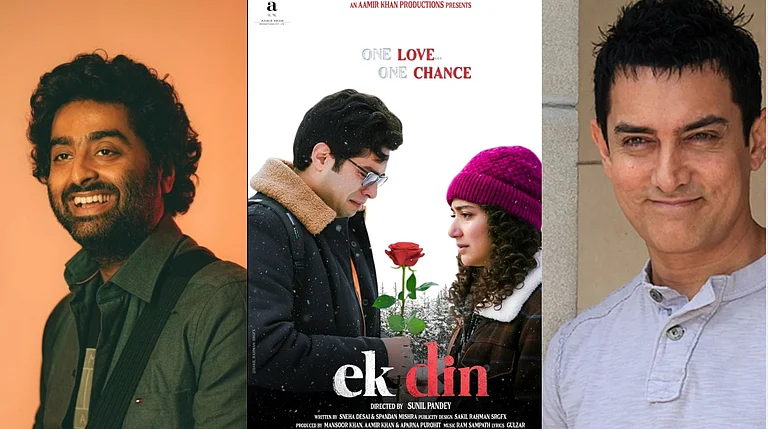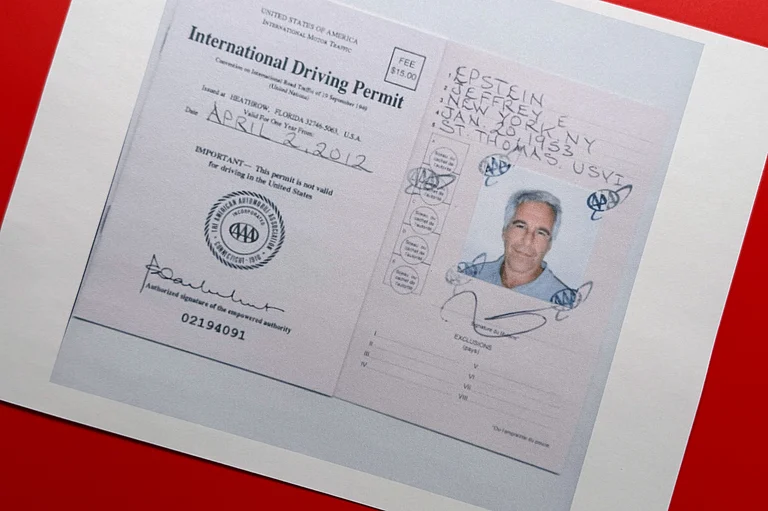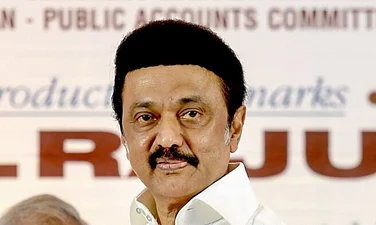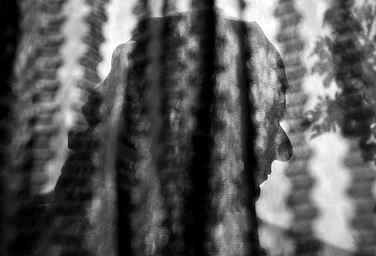The Gandhi siblings giggled their way through their mother's oath-taking ceremony in the Lok Sabha, ensconced in the visitors' gallery above the treasury benches. Priyanka sat head and shoulders above her brother and her husband, Robert Vadra, obviously amused at the way Congress MPs strained to catch her eye.
They arrived separately. Rahul got out of his car and dashed into Parliament without glancing left or right; Priyanka alit gracefully and paused for the cameras. It's always been that way. At Delhi's Modern School, Priyanka was acutely conscious of being the prime minister's grand-daughter. Rahul was self-effacing to the point of being invisible.
During the election campaign, Priyanka was very much in the national spotlight, both at Bellary and Amethi. Apart from campaigning aggressively, she made it a point to interact with the press and party workers. Rahul didn't campaign, restricting himself to shadowing his mother. He kept her company, saw to her comfort and protected her from adulatory crowds.
Though Priyanka may have overshadowed her brother, Rahul too was in the media focus. The high visibility of the Gandhi legatees during the last two months has left the Congress in little doubt that the next generation is being groomed for a place in the sun. Not immediately, lest the space at the top gets too crowded. "They're in no hurry. They've got their own lives to lead," says a senior Congress leader who's known the two practically since they were born.
For all her vehement assertion that politics leaves her cold, Priyanka, 28, and Rahul, 30, take an active interest in party affairs and interact with Congressmen who've been close to the family. That they will take charge of the Congress at some point of time is a given. It's no longer "will they, won't they". The only question is when.
"Congressmen have an almost superstitious faith in dynasty. They believe the party's future is inextricably linked with the Nehru-Gandhi clan. It defies rationale," observes a Congress Working Committee member. Even the pre-election split in the Congress over the issue of Sonia's foreign origin hasn't shaken its belief that only a Nehru-Gandhi can unite the party.
Sonia is 52, which effectively blocks the top slot for party leaders in their 50s and 40s. But her poor showing in the elections had fuelled some ambitions. Post-elections, it was felt that foreign origin had been an emotive issue and the country wasn't prepared to accept her as prime minister. One Congress leader close to 10, Janpath went so far as to say he would advise her to issue a statement saying she wasn't interested in public office but would continue as Congress president.
Sonia chose to go by contrary advice. "The moment she took oath as leader of the opposition, a Constitutional office which gives her the status of a cabinet minister-in effect, making her a shadow prime minister-foreign origin was no longer an issue," observes a senior Congressman. Even Sonia's detractors in the bjp, the Samata Party and the ncp fear that six months as an effective leader of the opposition could enhance her acceptability.
The assembly elections in Orissa and Bihar and perhaps Uttar Pradesh and Haryana next year will be Sonia's moment of truth. If the Congress does badly, she will be under intense pressure from her own party to project another leader. At that point, the charismatic Priyanka and taciturn Rahul could be brought in to bolster the confidence of Congressmen in the Gandhi family.
There's room at the top only for one, fuelling speculation on which of the Gandhi children will take the first plunge. Rumours of sibling rivalry are at least three months old, going back to Rahul's pre-election advent from London on a leave of absence from his job as a securities broker.
Congressmen who interacted with 10, Janpath came away with the impression that Sonia would prefer to promote her son rather than her daughter. It was even rumoured that a miffed Priyanka might dissociate herself from the election campaign, leaving the field to Rahul. As events turned out, it was the other way around.
With Rahul postponing his return to London, party members felt that he might contest the by-election from Amethi if Sonia vacated the family seat. Before that could happen, the Vadras went on record to say that they'd nurse the constituency. One reason for Sonia's decision to retain Amethi and vacate Bellary, say partymen, is her reluctance to choose between her children.
Priyanka's handicap is that she comes accompanied by her Vadra baggage. Her in-laws lobbied with various pcc chiefs to get tickets for their nominees before the elections. They were give a short shrift by Sonia, but fuelled fears that the Vadra clan might acquire disproportionate influence if Priyanka is projected as Sonia's successor.
Still, Priyanka is the popular choice. She has star quality, loves attention and is an excellent communicator. On the other hand, she can be brash and has no compunction about using strong language, referring to a senior opposition leader as "that rascal who stabbed my mother" during an informal meeting. Her brusque treatment of aicc general secretary Sushil Kumar Shinde, who was in constant attendance during the campaign, couldn't but evoke sympathy for the senior leader.
Priyanka pens the final draft of her mother's speeches and tenders advice-not always accepted-on party affairs. She calls up aicc secretaries for information and inputs. She's reported to have strongly opposed the Congress-ncp alliance in Maharashtra.
So far, sub-coteries haven't emerged around the two. "They've been exposed to public life even as children and they know its pitfalls," says a senior Congressman. Priyanka, in particular, has little patience with members of the sycophantic coterie who refer to her as "Priyankaji".
Ironically, it's this coterie-V. George, M.L. Fotedar and Arjun Singh-which would most like to see the Gandhi children inducted. Since their constituency is limited to 10, Janpath, they have the highest stake in seeing that power always flows from the Gandhi name.


























